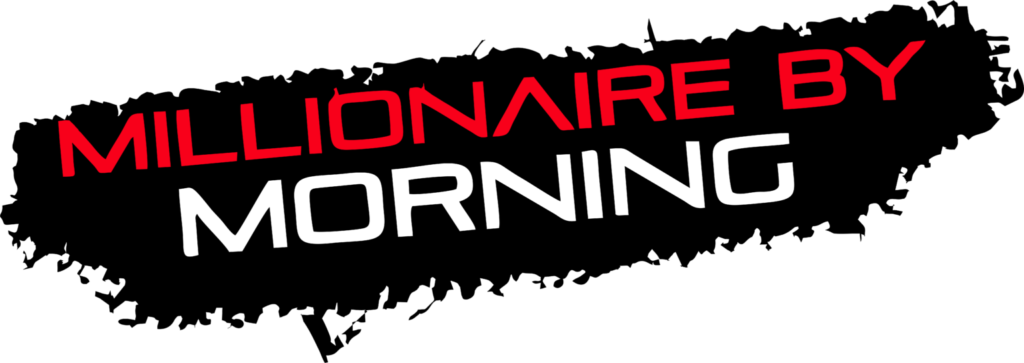
The idea of launching a new business can deter many aspiring entrepreneurs due to the challenges associated with it. You have to invest time and money to come up with a suitable idea, develop a product/service, build your team, gather resources, and promote the business. Thankfully, the concept of business franchising can help reduce these challenges.
Now you may ask what is a business franchise? So, let’s explore the concept in detail.
Table of Contents
ToggleWhat is a Business Franchise?
So, how does a franchise work?
Franchising offers small business owners the opportunity to start their business journey with proper guidance. It combines innovation with success and brand reputation.
Basically, it creates a strategic partnership between two entities: the franchisor and the franchisee.
First, let’s talk about the franchisor. They are a visionary business owner that has built a successful business model. They are known for their unique brand identity, strong customer base, and positive reputation. Due to brand success, they start offering licenses to people interested in starting a business.
The other party is called the franchisee who purchases the license from the larger franchisor. It can be a company operating within the country or an international company. For instance, McDonald’s, Dunkin’ Donuts, Pizza Hut, and 7-Eleven are some common examples of multinational franchises.

What distinguishes a franchise from an independent business is the comprehensive support system provided by the franchisor. It promotes a relationship based on mutual benefits, trust, and support.
So, it’s fair to say that a franchise isn’t just a business model. It’s a formula for success. New business owners tend to struggle with making their startup a success. So, they can benefit from the experience, reputation, and support of the established brand to make the process easier.
Different Types of Business Franchises
Business franchises can be categorized into different types. Thus, you can choose a type that offers you the best franchise opportunities for business ownership and growth.
Product Franchise
This type of franchise revolves around tangible goods.
The franchisor gives you the right to use their brand name and product trademark to sell products. From specialty foods to retail merchandise, this franchise type allows you to sell quality products by leveraging the goodwill of the established brand.
Typically, you would work as a distributor of the brand and sell/distribute products manufactured by the franchisor.
Service Franchise
Service franchises offer expertise and solutions to customers, ranging from cleaning and maintenance services to consulting and education. So, determine the demand for specialized skills and fulfill customer needs.

Manufacturing Franchise
The third type of franchising involves the production/manufacturing of goods or components for another product. It lets you contribute to the creation of products while benefiting from the franchisor’s expertise in operations and quality control.
Business Format Franchise
In this type of business franchise arrangement, the franchisor provides the business model to the franchisee.
This includes operational guidelines, product supply, marketing strategies, training programs, and ongoing support. So, it helps with maintaining uniformity and consistency across all franchise outlets.
Pros and Cons of Franchising
It’s common for new business owners to get confused about whether they should build a business from scratch or get a franchising license. So, let’s take a look at the advantages and drawbacks of a business franchise to determine whether it’s the right choice for you.
Pros of Business Franchising
Investing in a franchise means you don’t have to start from scratch. You have a ready-made business formula you can follow under the guidance of experienced business professionals.
The franchisor will offer information about the business model, location for stores, products to sell, markets to target, and hiring a skilled team. Further, you don’t have to go through the hassle of looking for vendors and negotiating the terms since the franchisor will provide a list of approved contractors.
The most important benefit comes in the form of brand recognition. With already-established brand recognition, you can attract customers and win their loyalty. As a result, the risk of losses and business failure decreases.

Cons of Business Franchising
Despite several benefits, there are certain pitfalls you should be aware of before investing in a franchise license.
The cost of setting up a business franchise is much more than starting a new business. Aside from the license fee, you need to pay the franchisor a fixed amount or a pre-defined percentage of revenue every month or year. And you are required to maintain a specific amount of liquid capital.
Franchising also reduces your autonomy. That’s because the franchisor makes all major decisions about operations. Thus, you won’t have control over major business decisions.
Since the main business wants to eliminate internal competition among the franchise network, they don’t let the outlets choose their location. So, if you receive the instructions to open the outlet in a poor location, you may struggle to attract and maintain customers.
How to Start a Franchise?
Now that you know about the advantages and disadvantages of franchising, you may wonder how to start a franchise.
Identifying the right franchise opportunity is the crucial first step on your journey to becoming a successful franchisee. The franchise market is diverse. It offers a multitude of options in various industries. To find the franchise that best aligns with your goals, interests, and investment capacity, follow these tried and tested strategies.
Consider Personal Goals
Begin by reflecting on your personal goals and interests. You can start a business franchise in the industry that attracts you the most. Also, it’s crucial to decide your investment budget beforehand.

Now, look at different types of franchise models. Whether you want to invest in a product franchise, service franchise, or other types of franchises, do it based on your goals.
Understanding your motivations and financial capabilities is the foundation upon which you’ll build your franchise venture.
Look for Franchising Opportunities
There are various ways to identify franchise opportunities. Investing in big names like Starbucks and KFC may not be in your budget when you’re just starting. But you can always find franchise contracts that meet your requirements.
Start your search by exploring franchise directories and dedicated websites. You can easily filter options by industry, investment budget, location, and franchise type.
Network with Existing Franchisees
Attend exhibitions and industry-specific trade shows. These events offer an excellent opportunity to connect with other franchisees. They can offer invaluable firsthand insights into their experiences, challenges, and successes. Conversations with existing franchisees provide a realistic perspective on what it’s like to run a particular franchise.
Furthermore, you can meet franchisors face-to-face at trade shows. Then ask them questions to gain a deeper understanding of their business models.

Evaluate Opportunities
Once you have shortlisted a few businesses, it’s time to choose the right franchise. For this purpose, evaluate those franchising opportunities.
Conduct thorough market research to assess market trends and product demand. Analyze consumer preferences and industry forecasts to make informed decisions. Moreover, it’s essential to choose a franchise that not only meets current market needs but also has the potential for sustained demand in the future.
It’s a good idea to consult legal and financial experts with experience in franchising for expert guidance.
Review Financial and Legal Aspects
After evaluating different franchise models and choosing a franchise, you may be ready to begin the process. So, reach out to franchisors to discuss the agreement.
Review the financial health of the franchisor along with its revenue streams, profitability, and growth trajectory. Make sure you understand their financial standing before making any commitments.
It’s also critical to go through the terms of the franchise agreement or license. The terms should be fair, transparent, and favorable to your interests.
Set Up Your Business
Finally, it’s time to set up your franchise outlet after signing the agreement.
The franchisor will provide comprehensive guidance about the business model. But it’s up to you to develop a detailed business plan based on their guidelines. Outline your operational strategies, marketing initiatives, and financial projections.

With the support and guidance of the franchisor, set up your franchise outlet while ensuring that it aligns with the brand standards. Assemble a skilled and motivated team that shares your enthusiasm for the business. Now you’re ready to launch your business entity with a focus on delivering exceptional value to your customers.
Final Words
At this stage, you may have a clear idea about what is a business franchise.
Franchising offers a unique pathway to business ownership. It provides a support system that empowers entrepreneurs to thrive in the competitive business world. The business agreement forms a relationship between the franchisor and franchisee based on their shared vision and values.
During this collaborative journey, the franchisor will guide you about different aspects of running the business. But at the same time, you need to put in the effort to meet stringent quality assurance requirements.
So, ready to dive into franchising? May your entrepreneurial dreams soar, your new business thrive, and your legacy endure!
